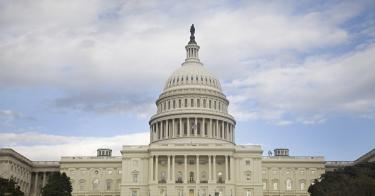House Speaker Nancy Pelosi this month delivered the passage of a fourth stimulus package. As written, however, the bill faces near certain doom in the Senate. Its fatal flaw is that it lacks a key provision for Majority Leader Mitch McConnell, which is pandemic liability protection. Acknowledging his extraordinary legislative management skills, the question Washington should be asking is not whether he will find any way to successfully pass liability protection, but rather what the mandate will be like.
One safe assumption is that the proposal will include a second revision in as many months for the current medical liability protection law known as the Public Readiness and Emergency Preparedness Act, so that it applies to a wider set of personal protective equipment manufacturers. But how can McConnell craft legislation that meets his stated goal of providing a reasonably obtainable safe harbor to the Americans who have worked in good faith to protect customers, while still holding accountable owners who act with gross negligence or intentional misconduct?
That question can be answered by borrowing from two existing laws, the aforementioned Public Readiness and Emergency Preparedness Act and the Support Antiterrorism by Fostering Effective Technology Act, that is also known as the Safety Act. The Safety Act provides the smart liability protection that many Americans seek, namely limits earned through the good faith implementation of effective security protocols.
Since its protections only apply to lawsuits arising out of terrorist attacks, the Safety Act as written will not be of much assistance with curbing the anticipated wave of pandemic lawsuits. But the Safety Act can serve as a strong foundation for any new safe harbor legislation. Its core concept of granting liability protection to businesses which have rigorously adopted government guidance is what McConnell hopes to create.
The Senate must modify the Safety Act language so that defendants can be dismissed from lawsuits regardless of whether they have been vetted by an agency. The pandemic legislation should instead hold defendants harmless when they can show that they attempted in good faith to follow guidance issued by public health officials or qualified associations. With crafting that kind of bill, McConnell will deliver the kind of liability relief that owners need to reopen their doors across the country.
That is not to say that a review process like the one under the Safety Act should be left out of any future legislation. Many businesses are going to create invaluable products to combat pandemics, ranging from contact tracing software to novel cleaning solutions. Such new products, along with some other services like temperature takers and monitors of social distancing rules, should also not face unwarranted lawsuits.
That is why the pandemic legislation needs to give businesses a chance to seek liability protection by filing an application with a federal agency. That agency would send the application to government sanctioned experts for a thorough review to confirm that the policy or technology that an owner proposes to use are effective in battling pandemic threats.
It is critical to ensure that the legislation is not viewed as a “get out of jail” immunity card for businesses. No liability protection law ever enacted by Congress has ever done that, and it should not do so here. The two laws described above will prove useful, as Congress can adopt the provisions nullifying their protections in an event of fraud or willful misconduct. It is also critical that the new pandemic legislation will apply to all businesses, even nonprofits and especially small businesses, which are the backbone of the economy and are at risk of opportunistic tort lawsuits.
Importantly, the liability legislation must not be viewed as just applying to the current pandemic as a future health crisis is likely to come. Congress must feel obligated to pass a law that stimulates investment in products and services that will help to blunt the next pandemic. That is where the review process will be the most useful, as it will spur a creation of such products through powerful liability protection in the statute.
By drawing from existing laws that limit liability in ways that ensure less frivolous tort lawsuits and effective pandemic mitigation, Congress will have done its part to prevent unscrupulous lawyers from hindering the recovery of the economy that Americans desperately need.
This piece originally appeared in The Hill on 5/26/20



